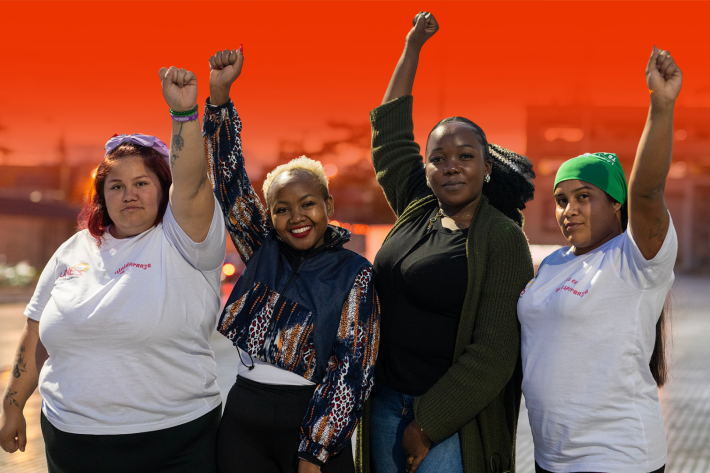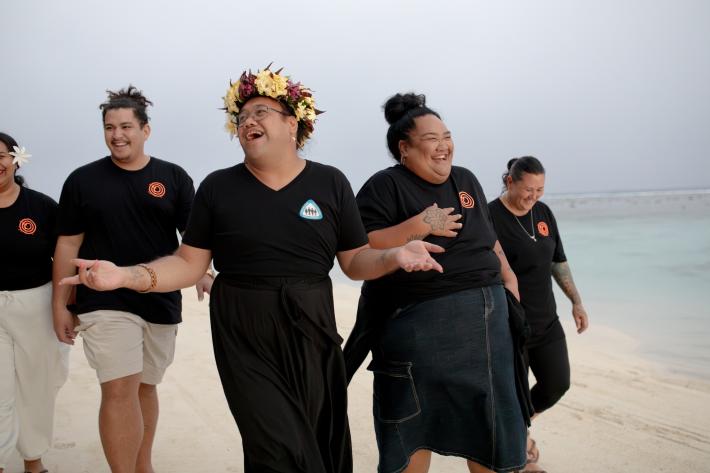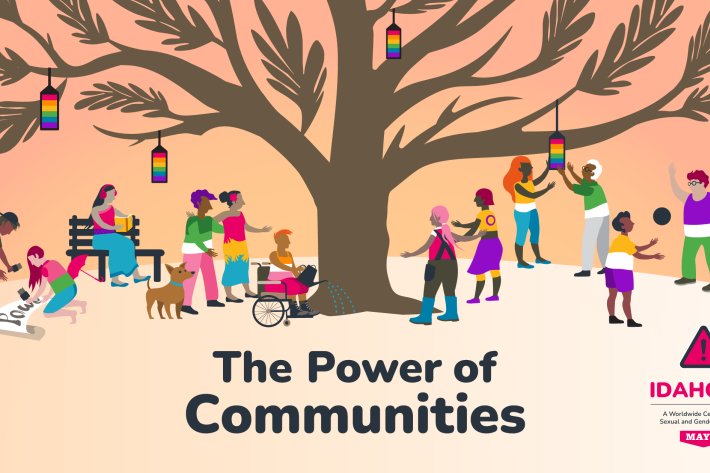
Spotlight
A selection of news from across the Federation
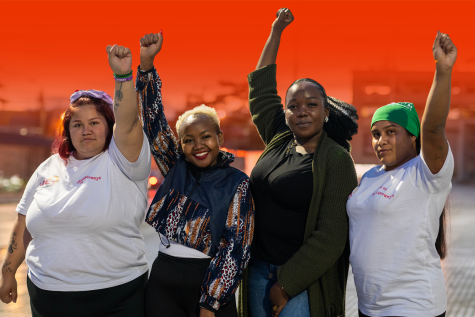
We Made It a Charter: IPPF’s Declaration of Values
Proud, bold, and united: we are values-led.
Filter our news by:

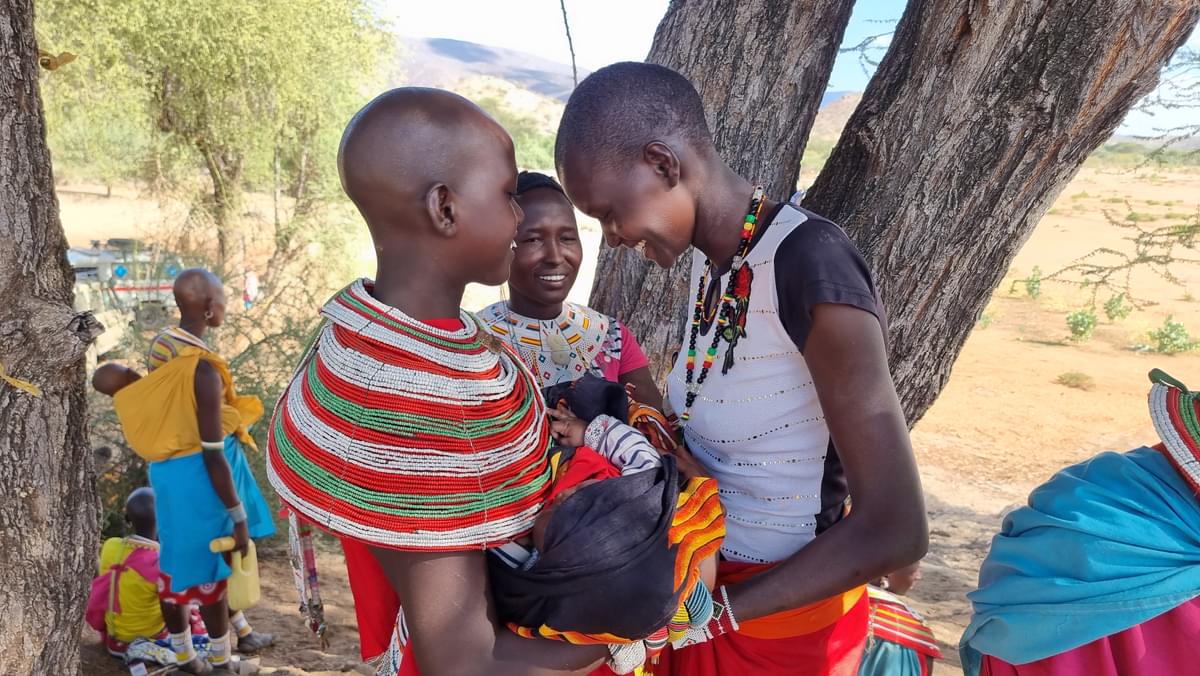
| 30 September 2024
EmpowHER: IPPF Announces New Global Initiative to Empower Women, Girls, and Marginalized Communities
The International Planned Parenthood Federation (IPPF) has launched the CAD48 million "EmpowHER" project in partnership with Global Affairs Canada. The initiative aims to improve sexual and reproductive health and rights (SRHR) for marginalised women, girls, and underserved communities across at least 11 countries. EmpowHER will enhance access to sexual and reproductive health (SRH) care, deliver comprehensive sexuality education, and combat growing threats to SRHR through policy reform and advocacy. This partnership aligns with Canada’s commitment to gender equality and empowering young people to make informed choices about their well-being. Ensuring Inclusive SRHR Delivery for Women, Girls and Marginalise Communities (EmpowHER), is a large-scale initiative that will strengthen access to SRHR for the most marginalised and underserved groups, particularly women and girls. It will support millions of women, girls, and vulnerable communities in Burkina Faso, Democratic Republic of Congo, Ghana, Guinea, Guinea-Bissau, Kenya, Mauritania, Sudan, Zambia, Uganda, Togo, Colombia, Ecuador and Pakistan. Through an intersectional, human rights-based feminist approach, EmpowHER will increase access to much needed rights-based SRH care, including access to person-centred safe and legal abortion care. It will deliver critical comprehensive sexuality education (CSE) to empower young people to act on their sexual and reproductive rights (SRR) by expanding their access to quality, rights-based, and gender-sensitive CSE. Furthermore, this initiative will also counteract the growing threats to women’s and girls' sexual and reproductive health rights, by providing urgent support to improve policies and strengthen the capacity of movements and coalitions. Dr. Alvaro Bermejo, Director-General of IPPF, emphasised the critical need to protect and expand access to SRHR. “This new project will continue our mission of empowering women and girls, particularly in Sub Saharan Africa, to make informed decisions about their bodies. We will not only increase access to much needed SRHR services including safe and legal abortion but will also deliver CSE to young people and tackle the rollback of SRHR rights.” “We’re grateful to the Canadian Government for their support and continued partnership.” The funding, unveiled during the United Nations General Assembly (UNGA), is part of Canada’s 10-Year Commitment to Global Health and Rights and aligns with its Feminist International Assistance Policy. Canada is committed to securing a more gender-equal world in which young people are empowered to exercise their rights and make free and informed decisions about their sexuality and well-being. "By supporting the EmpowHER initiative, Canada is taking another step towards achieving gender equality and empowering women and girls, in all their diversity, worldwide. This project will not only improve access to vital sexual and reproductive health services, but also ensure that the most marginalized communities can exercise their rights and make informed choices about their health and future. Together, we will strengthen partnerships that champion these rights and protect the progress we've made", said the Honourable Ahmed Hussen, Minister of International Development, Canada.

| 10 November 2022
Sexual and reproductive justice to deliver the Nairobi commitments
Today, the International Planned Parenthood Federation (IPPF) is helping launch the second report of the High-Level Commission on the Nairobi Summit, also known as the International Conference on Population and Development 25 (ICPD 25). The Commission is an independent advisory board comprised of 26 members from different sectors tasked with monitoring progress on the ICPD Programme of Action and Nairobi Summit Commitments. The programme of action contains commitments from 179 countries to put the rights, needs and aspirations of individual human beings at the centre of sustainable development, part of which includes achieving universal access to sexual and reproductive health for all. The report - ‘Sexual and reproductive justice as the vehicle to deliver the Nairobi Summit commitments’ - highlights sexual and reproductive justice as the key to the realization of the Nairobi Summit commitments. Sexual and reproductive justice is a universal concept. It includes the right to have or not have children, the right to parent one’s children in safe and sustainable environments, and the right to sexual autonomy and gender freedom. Monitoring the implementation of life-saving sexual and reproductive health and gender-responsive services is crucial to ensure accountability and human rights for all. However, while some progress has been made, many barriers persist, and millions worldwide still do not realize their sexual and reproductive rights. Progress on Nairobi Summit Commitments: Numerous country commitments made at the Nairobi Summit align with a sexual and reproductive justice framework. They pay explicit attention to marginalized and vulnerable populations, notably people with disabilities, refugees, migrants (particularly migrant women), young people and older persons. Indigenous peoples, people of African descent and other ethnic minority groups have received less attention. A slew of new reproductive rights legislation followed the Nairobi Summit, suggesting a basis for a sexual and reproductive justice framework. The high number of commitments prioritizing sexual and gender-based violence offers a powerful entry point for promoting sexual and reproductive justice. On the Summit’s Global Commitments, some improvement is evident in meeting unmet need for family planning. But no region has registered positive movement towards zero preventable maternal deaths. Greater access to family planning has yet to translate into better maternal health outcomes. There is some progress in offering comprehensive and age-responsive information and education on sexuality and reproduction and adolescent-friendly, comprehensive, quality and timely services. Certain regions and countries have advanced in providing timely, quality and disaggregated data. More must be done, but this creates opportunities for ensuring that data capture intersecting challenges and are used to inform laws, policies and programmes. Domestic and international finance is critical to sexual and reproductive justice but persistently lags commitments. More than 4 billion people globally will lack access to at least one key sexual and reproductive health service during their lives Dr Alvaro Bermejo, Director-General for the International Planned Parenthood Federation, said:

| 02 February 2017
The human cost of the Global Gag Rule
IPPF has now compiled data outlining how the reinstatement of the Global Gag Rule will affect people’s health around the world. Our global network of local partners delivers more than 300 services every minute of every day. During President Trump’s term, we will forego approximately USD$100m funding from the US government, which would have supported our family planning and HIV programmes for women with the greatest need for these health care services. The regions most affected are sub-Saharan Africa, South Asia and Latin America and the Caribbean. In practical terms, this level of funding could have prevented: 20,000 maternal deaths 4.8 million unintended pregnancies 1.7 million unsafe abortions It could have also provided: treatment to 275,000 pregnant women living with HIV to protect their health and help prevent transmission of HIV to their infants 70 million condoms to prevent unintended pregnancies, HIV and other STIs 725,000 HIV tests to enable people to know their HIV status The foregone funding could have also treated 525,000 sexually transmitted infections. As an organisation that seeks to protect and improve the lives of women, men and children around the world, IPPF and its partners in 171 countries will not sign a policy that denies human rights and puts the lives of women at risk. We are working with governments and others to bridge this new funding gap and help keep our clinics open. Sign up now to get updates on how you can be involved and make a difference. JOIN OUR THUNDERCLAP TO SPREAD THE MESSAGE SUPPORT OUR WORK WITH A DONATION
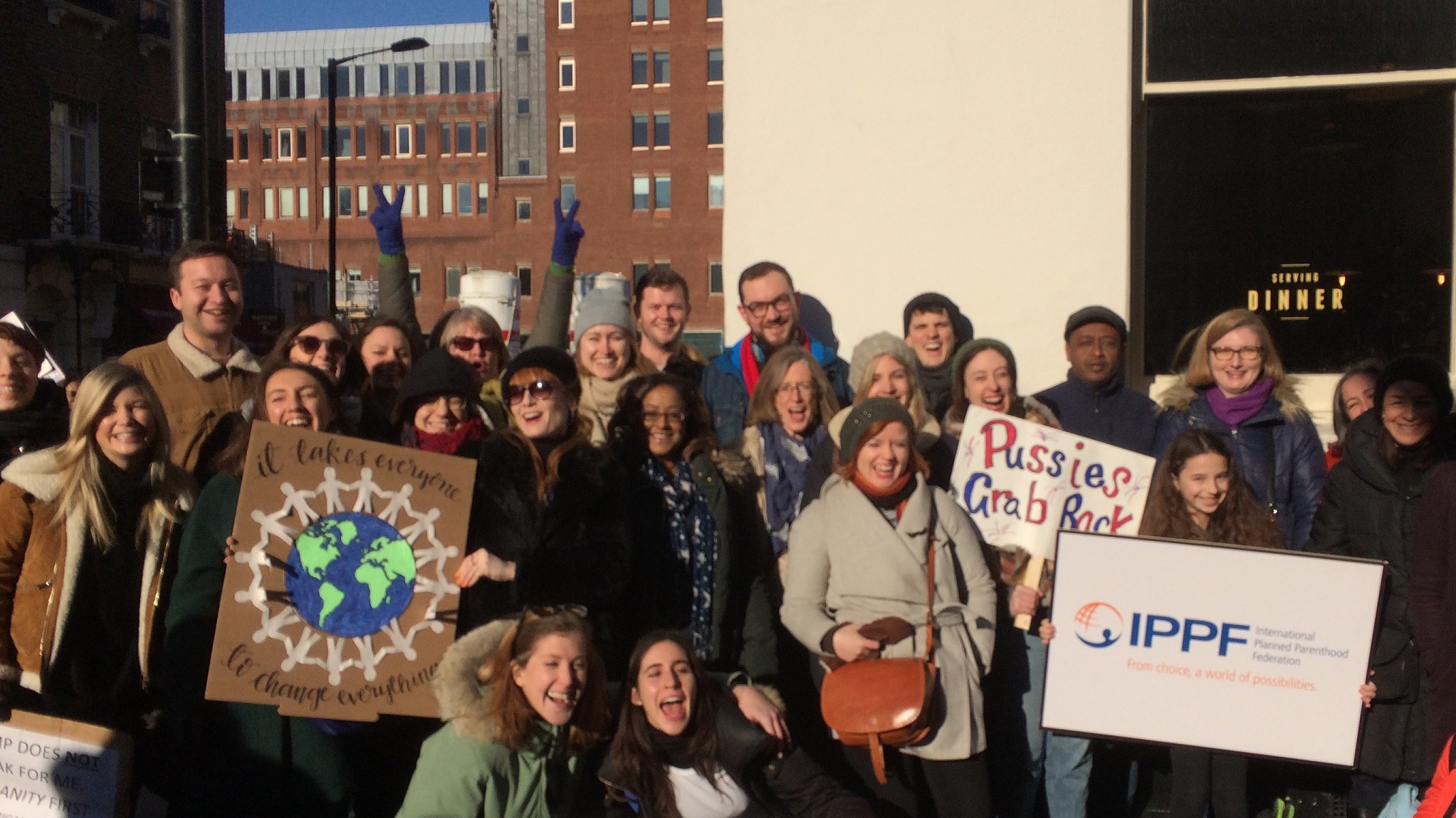
| 24 January 2017
IPPF speaks out against the Global Gag Rule
IPPF stands to lose $100 million USD received from the US, even though none of that money is used for abortion services. IPPF spoke out against Trump's reinstatement of the harmful Global Gag Rule (aka Mexico City Policy) to both BBC's Woman's Hour radio show and Australia's ABC 24 News. Our Member Associations have also spoken out against this violation of rights that service restrictions will lead to: "Funding cuts would mean we can't support 37 districts including supporting Government of Nepal effort on sexual and reproductive Health and rights. Additionally we would not be able to run community clinics or mobile health days or train health care workers. The impact also means we would lose essential medical staff like nurses, doctors and health experts. It would be devastating. " - Ms. Amu Singh Sijapati, President of Family Planning Association of Nepal As one of the biggest family planning organizations in the world, we work in over 170 countries to deliver integrated sexual and reproductive health services to the most marginalized women and communities around the globe. Funding cuts will limit the range of services and restricts how well they can be accessed in remote and rural areas by those who can’t afford transport, food or housing, and will now have to pay for services from other providers who charge more for treatment. "Our projects make a real difference. Young people living with HIV face stigma and violence which is a big problem for girls here in Kenya. These issues create barriers for getting care which means higher risks of ill health and harm. It’s vital that we work within local communities and offer services that recognise these specific needs. Without further funding FHOK may be unable to continue this support, scale up or replicate in other parts of Kenya. It would mean denying services to those who need them the most." - Edward Marienga, Executive Director -Family Health Options of Kenya Putting a ‘gag order’ on local providers who know the specific laws and needs of their communities flies in the face of common sense and reason,” said Marta Royo, Executive Director of Profamilia Colombia, an IPPF Member Association. "The impact of the rule under other U.S. Administrations has been dramatic—many organizations were forced to slash services or even shut their doors because they lost US funding for even mentioning abortion. As a result, women lost access to maternal health care, treatment for HIV and contraception that would help them prevent unintended pregnancies in the first place. Unsafe abortion is one of the leading causes of maternal death in the world and evidence has shown that denying women’s access to abortion doesn’t reduce the incidence of abortion; it just makes it unsafe.” WANT TO GET INVOLVED? SUBSCRIBE NOW TO GET UPDATES FROM IPPF SUPPORT OUR WORK WITH A DONATION View my Flipboard Magazine.

| 28 November 2016
IPPF joins Durex on World AIDS Day to detail the risks of unprotected sex
“Open Umbrella with Raindrops” emoji revealed as the people’s choice following a global poll* in response to Unicode’s refusal to create an official Condom Emoji. To mark World AIDS Day Durex calls for people to use and share the “Umbrella with Raindrops” emoji to help raise awareness of the risks associated with unprotected sex More than 75% of 16-35 year olds surveyed1 use emojis to discuss sex, with 9 out of 10 claiming that a safe sex emoji would help them to talk more openly about safe sex Almost 50% of 16-35 year olds think that HIV is not something that could ever affect them** despite the fact that every 30 seconds a young person is infected with the virus*** As part of Durex’s ongoing #CondomEmoji campaign, the World’s leading sexual wellbeing brand has today announced “Umbrella with Raindrops” as the overwhelmingly preferred choice in a global poll* to name the unofficial safe sex emoji. To mark World AIDS Day on December 1st, Durex is calling for people across the globe to use and share the emoji in order to raise awareness of the risks associated with unprotected sex and to demonstrate to Unicode the need for an official #CondomEmoji to be approved and appear on every smartphone. The campaign was launched following the shocking revelation that almost half of 16-35 year olds surveyed felt that HIV is not something that could ever affect them despite the reality that every 30 seconds a young person is infected with HIV***. More than 60% of young people surveyed* admitted to being uncomfortable discussing safe sex, with 72% of respondants admitting they found it easier to express emotions using emojis and more than three quarters admitted that they used emojis to discuss sex and relationships. When questioned 9 out of 10 agreed that an official #CondomEmoji would be something that would help them to talk more openly about safe sex. Durex Global Category Director, Volker Sydow, said: “At Durex we believe that for this World AIDS Day identifying the unofficial safe sex emoji is an important step that helps to empower young people to put safe sex back on the agenda, supporting the fight to reduce the spread of HIV and AIDS. We are asking people to show their support for the cause by using this unofficial safe sex emoji and sharing the hashtag #CondomEmoji.” The campaign has also received the support of the International Planned Parenthood Association (IPPF), with Director General Tewodros Melesse adding: “Safe sex awareness continues to be an important global challenge. We support Durex’s campaign in helping make young people think about protection. On World AIDS Day we will be backing this effort to help raise awarness of the risks associated with unprotected sex.” Durex have created an online video as part of the campaign: Sources: * 3GEM research questioning 3500 people from UK, USA, Brazil, China, India and South Africa commissioned by Durex – UK, October 2016 ** Someone Like Me, VIMN & Brand Solutions Insight with Tapestry Research, 2014 *** UNAIDS. Global Report 2010, Core Slides, Slide 11 About Durex Durex® is the #1 sexual wellbeing brand worldwide, producing a wide range of products, including high quality condoms, intimate lubricants and personal massagers. With over 80 years of experience in the bedroom, Durex is dedicated to inspiring lovers to love sex safely. That is why Durex will never stop innovating with new products that enhance the sexual experience, helping couples get closer and go further together. For more information, go to www.Durex.com. About RB* RB* is the world’s leading consumer health and hygiene company. The company has operations in over 60 countries, with headquarters in London, Dubai and Amsterdam, and sales in most countries across the globe. The company employs approximately c. 37,000 people worldwide. Inspired by a purpose to deliver innovative solutions for healthier lives and happier homes, RB is in the top 20 companies listed on the London Stock Exchange. We are the global No 1or No 2 in the majority of our fast-growing categories, driven by an exceptional focus on innovation. Our health, hygiene and home portfolio is led by our global Powerbrands including Nurofen, Strepsils Gaviscon, Mucinex, Durex, Scholl, Clearasil, Lysol, Dettol, Veet, Harpic, Cillit Bang, Mortein, Finish, Vanish, Calgon, Air Wick, Woolite and French’s. Our Powerbrands represent 80% of net revenue. RB is redefining the world of consumer health and hygiene. Our people and unique culture are at the heart of our success. We have a drive for achievement and a passion to outperform wherever we focus, including sustainability where we are targeting a 1/3 reduction in water impact, 1/3 reduction in carbon and 1/3 of net revenue from more sustainable products. We are proud to be Save the Children’s largest global partner, with a new vision to radically reduce one the world’s largest killer of under 5s, diarrhoea. For more information visit www.rb.com. *RB is the trading name of Reckitt Benckiser group of companies
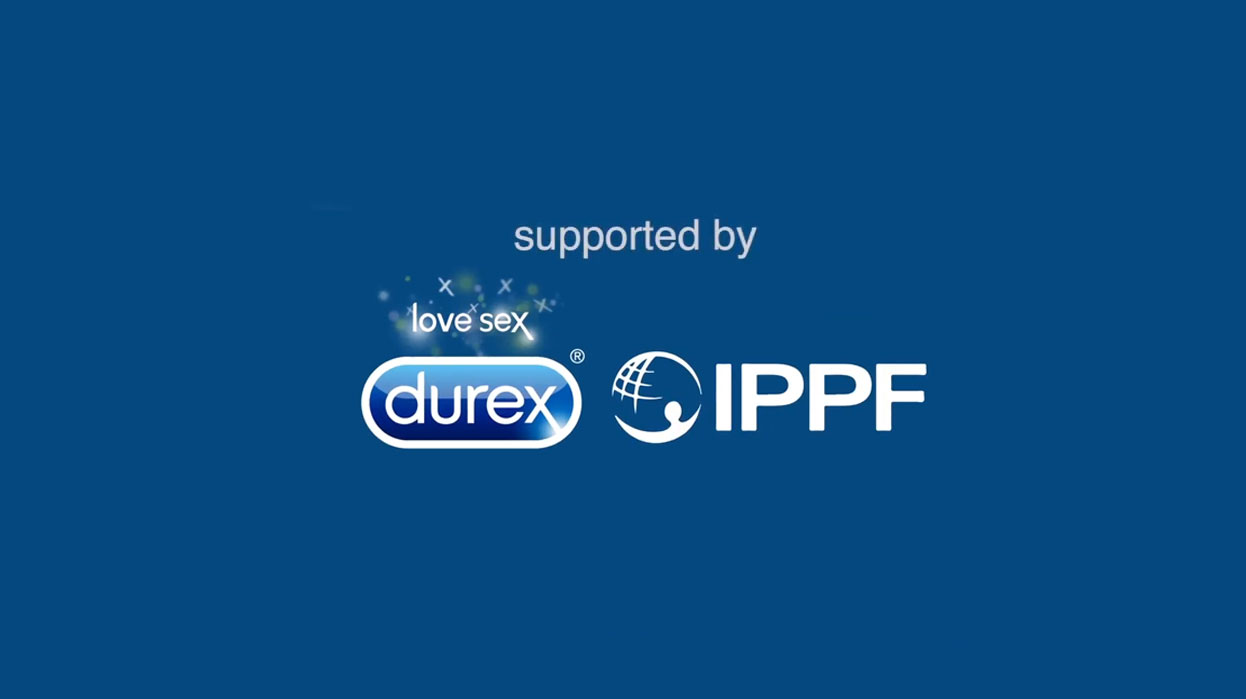
| 05 August 2016
IPPF and Durex join forces to raise awareness of Zika as an STI
Global #DontShareZika campaign launched to spread the message with an educational video and condom giveaway. As the global focus shifts to Brazil, the world’s leading sexual wellbeing brand Durex and the International Planned Parenthood Federation (IPPF) have joined forces to launch #DontShareZika, a global campaign to raise awareness of the Zika virus, educate about its status as a sexually transmitted infection (STI) and provide direct support by handing out millions of free condoms. We're working with @ippf to help stop the spread of #Zika. Want to help? Share this, but #DontShareZika… pic.twitter.com/hdhx51sEi2 — Durex Global (@durex) August 5, 2016 The move follows the update by the World Health Organization (WHO), confirming that in addition to being spread by infected mosquitoes, Zika* can also be transmitted sexually. This means that everyone - including people in a monogamous relationship - may be at risk from the STI if they, or their partner, have visited an affected area and been bitten by an infected mosquito. As an STI, the Zika virus has the potential to travel and spread between people who may not even realise they are infected. In response, Durex have created the #DontShareZika video to educate that the Zika virus can be passed between couples during unprotected sex, and committed to a giveaway of three million free condoms in Brazil. WHO recommends that men and women returning from an area where Zika is circulating should practice safer sex, including through the correct and consistent use of condoms, for at least eight weeks after leaving an affected area, even if they don’t have symptoms. At a time when Brazil is expecting as many as a million extra visitors from across the globe, the #DontShareZika campaign aims to spread this important message as widely as possible to limit the risk of further infections. #DontShareZika follows recent work by Durex lobbying for the world’s first safe sex emoji** designed to help young people discuss safe sex. Both initiatives are part of Durex’s continuous efforts for better sexual health and education globally. “As the world’s number one sexual wellbeing brand we have a responsibility to make people aware of this STI, to help people to stay healthy and to prevent the sexual transmission of the virus.” commented the Global Director ofRB the brand, Volker Sydow. IPPF Director General Tewodros Melesse, added; “Our aim is to ensure all people have access to sexual and reproductive health information and services. At the moment, many people still don’t realise that Zika can be transmitted sexually. Communicating this and enabling people to protect themselves and their partners is critical, so we welcome #DontShareZika and Durex’s free condom giveaway in Brazil.” Durex are calling for people to support the campaign and help share a message of protection and prevention faster than this STI, Zika, can be spread, by sharing the informative video and using the hashtag #DontShareZika. Follow @Durex for more information. For more information on the Zika virus visit: http://www.who.int/mediacentre/factsheets/zika/en/. -ENDS- For further information please contact Amy Williams: amy.williams@premiercomms.com/ 0207 292 5084 or Toby Leston: toby.leston@premiercomms.com/ 0207 2929 6451 Notes to Editors * Zika virus is linked to microcephaly - a condition where babies are born with brain damage and undeveloped heads. ** www.youtube.com/watch?v=O7iKgKpkWfU About Durex Durex® is the #1 sexual wellbeing brand worldwide. The brand not only produces condoms that exceeds global testing standards, but also offers pleasure gels, lubricants and personal massagers. With over 80 years of experience in the bedroom, Durex is dedicated to inspiring lovers to love sex safely. That is why Durex will never stop innovating with new products that enhance the sexual experience, helping couples get closer and go further together. For more information, go to www.Durex.com. About RB* RB is the world’s leading consumer health and hygiene company. The company has operations in over 60 countries, with headquarters in London, Dubai and Amsterdam, and sales in most countries across the globe. The company employs approximately c. 37,000 people worldwide. Inspired by a purpose to deliver innovative solutions for healthier lives and happier homes, RB is in the top 20 companies listed on the London Stock Exchange. We are the global No 1or No 2 in the majority of our fast-growing categories, driven by an exceptional focus on innovation. Our health, hygiene and home portfolio is led by our global Powerbrands including Nurofen, Strepsils Gaviscon, Mucinex, Durex, Scholl, Clearasil, Lysol, Dettol, Veet, Harpic, Cillit Bang, Mortein, Finish, Vanish, Calgon, Air Wick, Woolite and French’s. Our Powerbrands represent 80% of net revenue. RB is redefining the world of consumer health and hygiene. Our people and unique culture are at the heart of our success. We have a drive for achievement and a passion to outperform wherever we focus, including sustainability where we are targeting a 1/3 reduction in water impact, 1/3 reduction in carbon and 1/3 of net revenue from more sustainable products. We are proud to be Save the Children’s largest global partner, with a new vision to radically reduce one the world’s largest killer of under 5s, diarrhea. For more information visit www.rb.com. *RB is the trading name of Reckitt Benckiser group of companies About IPPF IPPF delivers sexual and reproductive health services that let people make their own choices. We fight for everyone to have the right to make those choices. We are local, through our members and volunteers, and global, through our network. We meet need, wherever it is, whoever requires it, for as long as they want it.
| 23 May 2016
Global comprehensive sexuality education: “too little, too late, too biological” says new report
Sex education across the world is ‘too little, too late and too biological’, according to a new report released today by the world’s leading provider of sexual health services. The International Planned Parenthood Federation (IPPF), which works with partner organisations in 170 countries, is calling for all of the world’s 1.8 billion young people aged between 10 and 24 to get universal access to comprehensive sexuality education (CSE). A new report called: ‘Everyone’s Right to Know: delivering comprehensive sexuality education for all young people’ calls for more investment in, and better CSE for the largest youth population that the world has ever seen. IPPF says it is an issue that needs to be tackled urgently as the number of young people continues to rise. “The starting point, and the absolute minimum requirement, is that CSE must reach all young people – wherever they are,” according to the Director General of IPPF, Tewodros Melesse. “We cannot achieve gender transformative change by focusing only on health outcomes. We must equip young people with information about health as well as positive aspects of sex and sexuality,” he added. The report argues that millions of young people are missing out completely on CSE. It says that CSE delivery is often outdated and non-participatory and that teaching staff are not adequately trained and content focuses exclusively on health outcomes, rather than the recognition of rights. Too often CSE is scientifically inaccurate and solely geared to health outcomes. In particular, it emphasizes potential negative health risks, as opposed to seeing young people as sexual beings and recognizing the positive aspects of sexuality. The report also says that the most vulnerable young people, who often find themselves outside the school system, are excluded. IPPF believes gaps must be filled to ensure that CSE is also provided in non-formal settings outside the classroom, reaching the hardest to reach young people. Vesna Turmakovska works with young people with learning difficulties at IPPF’s Member Association in Macedonia. She said: “Sexuality is part of these young people’s lives; they’re sexual beings and they express their sexuality on a daily basis. Some parents were afraid that the very fact of learning about sexuality would encourage their children to have sexual relations. “We explained that it was about giving skills to their children to make them capable of defending themselves from potential abusers. We also explained that they need skills to become more independent in life, and need to be able to make a distinction between friendship and love.” The report demands three things. It calls on government worldwide to deliver high quality CSE that meets the needs of all young people in and out of schools. Secondly, governments, civil society organizations and health providers must make sure teachers, educational institutions and individuals who deliver CSE in both schools and non-formal settings are trained sufficiently and are confident in delivering sexuality education in a way that is positive and non-judgmental. Finally, educators and civil society should work with communities and parents to build support for CSE as well as a culture that supports choice and respect for young people and their sexual and reproductive health and rights. This report says implementing high quality CSE inside and outside schools is a necessity for governments worldwide, not a political choice. It says that to ignore the education of young people, to restrict their choices, to limit access to life-saving services and to deny their happiness Notes to editors: For more information please contact a member of IPPF’s communications team. Marek Pruszewicz, Director of Communications mpruszewicz@ippf.org+44(0) 7740 631769

| 28 January 2016
Pledging to reach new contraceptive users: Turning Family Planning into Future Planning for 60 Million Women
The International Planned Parenthood Federation (IPPF) announced its most ambitious pledge ever: to realize the human rights of a further 60 million women to choose freely the size of their families. The pledge was unveiled as IPPF's global contribution to the Family Planning 2020 goal at the International Family Planning Conference in Indonesia today. IPPF is committed to working with Family Planning 2020 and the global family planning community to reach the goal of ensuring 120 million additional women have access to family planning by 2020. The Federation, with the world's largest non-governmental family planning service delivery network, has driven its own performance since the London Summit reaching 15 million new users of modern family planning. IPPF is now upwardly revised its pledged contribution towards the global FP2020 goal. Thank you to @ippf for pledge to serve 60M NEW users of contraception to meet #FP2020 goals! #ICFP — Family Planning 2020 (@FP2020Global) January 28, 2016 Tewodros Melesse, IPPF Director General, announcing the pledge, said “This is not a game of numbers. For us, it's very simple, it can only be about putting women at the front and centre of what we do. I'm delighted by what we have achieved and that we can make this significant and increased contribution through this pledge. Since 2012, IPPF's total reported client numbers increased by nearly 40 per cent. This was achieved by expanding our client base, not by changing who we serve. We have raised investment in family planning and improved our overall performance." Building on this success, IPPF has set an even more ambitious target for new users to contraception. Between 2015 and 2020 IPPF pledges to reach a further 45 million new users in the FP2020 focus countries. This will mean that IPPF will serve a total of 60 million new users between 2012 and 2020, a major contribution towards the FP2020 goal. Dr. Ariel Pablos-Méndez, Assistant Administrator for Global Health and Child and Maternal Survival Coordinator, Global Health Bureau, USAID said on IPPF's announcement,'Community driven approaches increase access for new users to family planning. When offered alongside a basket of primary health services - like those provided by IPPF - poor, young and rural women and men can get the voluntary family planning and other health programs that focus on their needs. This client-focused approach will get us another step closer to our FP 2020 goals and ultimately universal health coverage." “FP2020 congratulates IPPF on this ambitious renewed commitment to advancing the rights of women and girls around the world to decide for themselves when and how many children to have,” said Beth Schlachter, FP2020 Executive Director. “IPPF has been a leader in providing modern contraception to women and girls for decades, and as key partners in the global FP2020 movement they are helping ensure that family planning remains a central part of the global development agenda as we work towards achieving the Sustainable Development Goals and universal access.” IPPF is on target to achieve our goal of doubling the number of services provided by 2015. This is a milestone towards the Federation's commitment to treble the number of its high-impact life-saving and changing sexual and reproductive health services provided by 2020. Between 2012 and 2014, IPPF achieved a significant increase in access for new users of modern contraception. In 59 of the 69 FP2020 focus countries where IPPF is operational, the Federation provided family planning services to 15 million new users in just three years. Our Strategic Framework which started in January 2016, renews and strengthens its commitment to support the rights of women and girls to decide freely whether, when and how many children to have. IPPF will deliver high impact, quality, rights-based, integrated sexual and reproductive health services, including packages that address family planning, safe abortion, prenatal care, STIs/HIV, sexual and gender-based violence and cervical cancer. IPPF will optimize the number of people it can serve by increasing operational effectiveness, expanding provision in humanitarian emergencies and increasing national and global income to provide the increased services. The Federation will also enable the provision of services by other public and private health providers.








